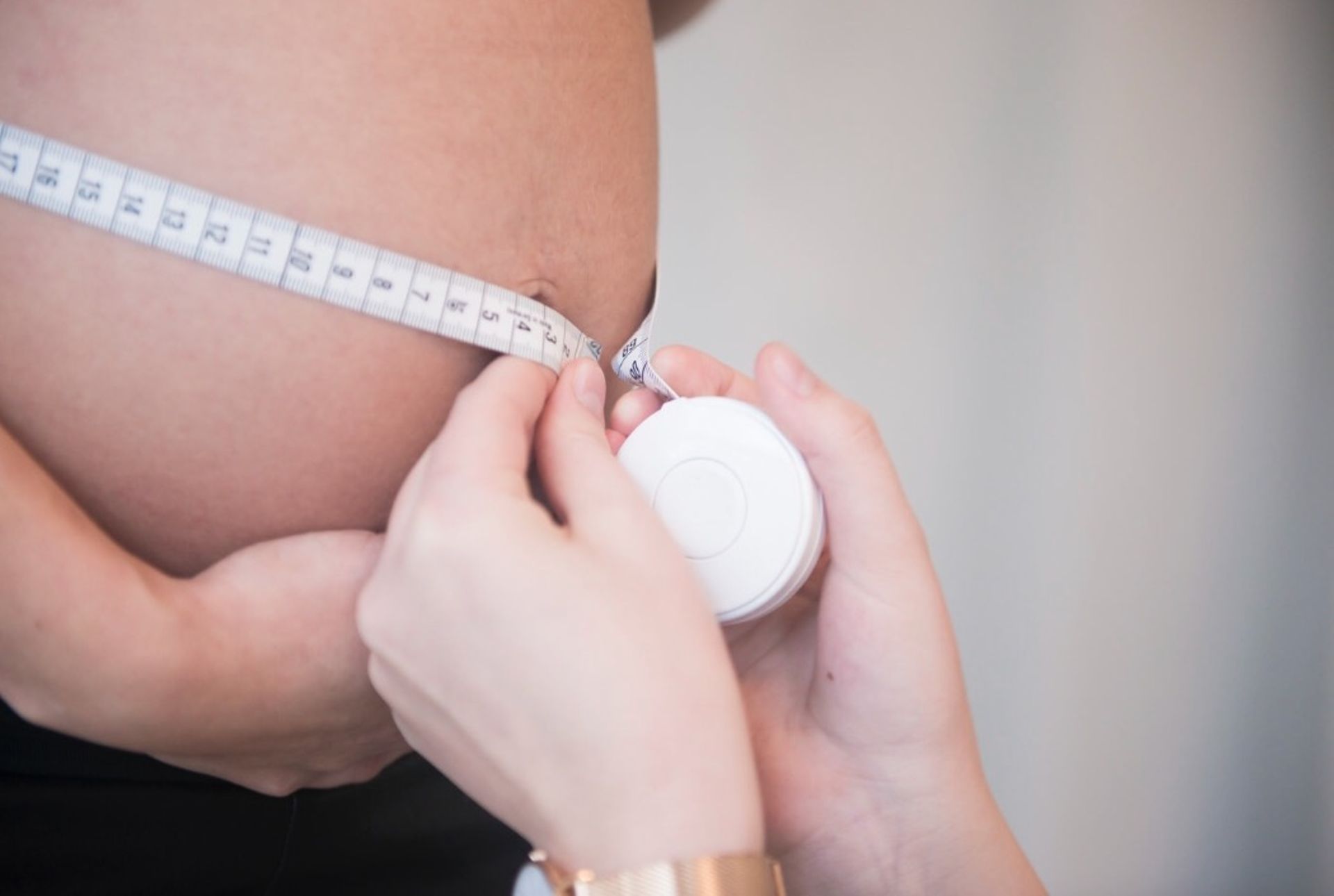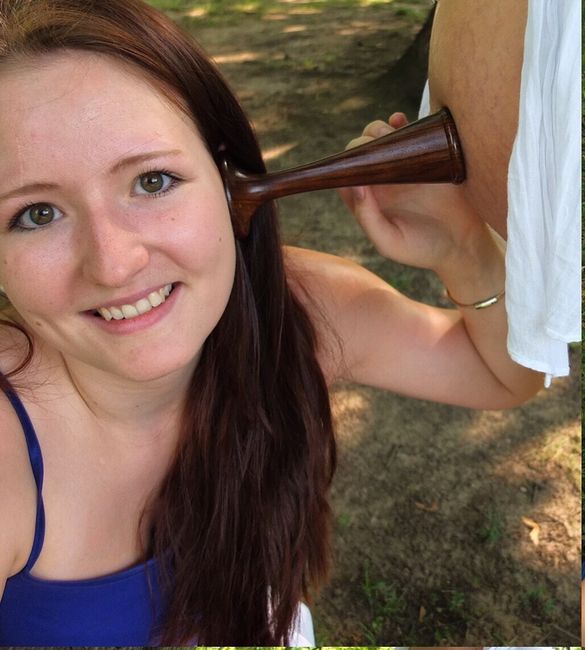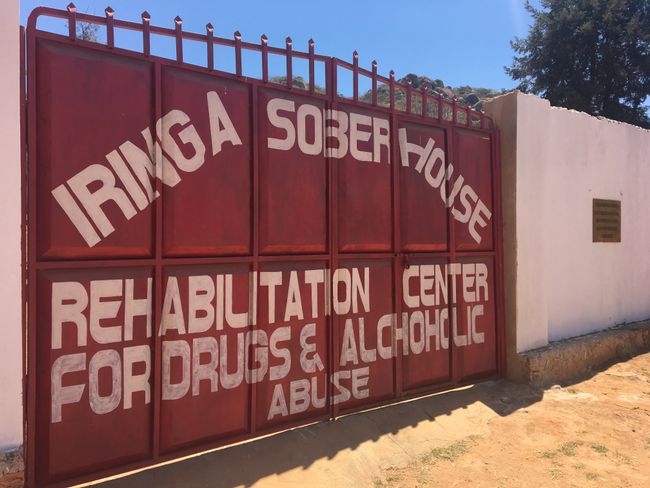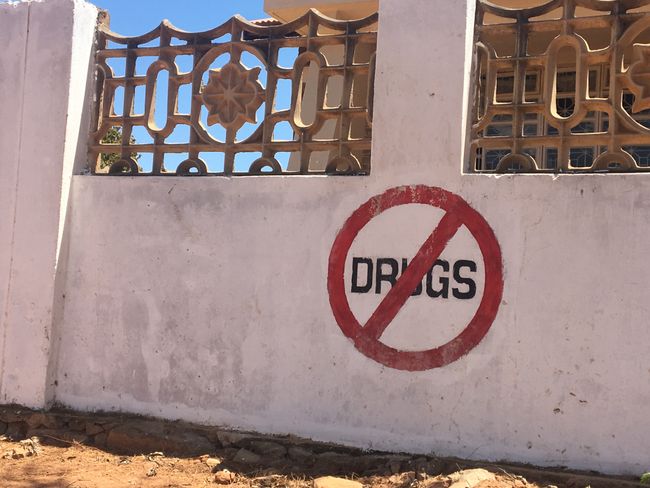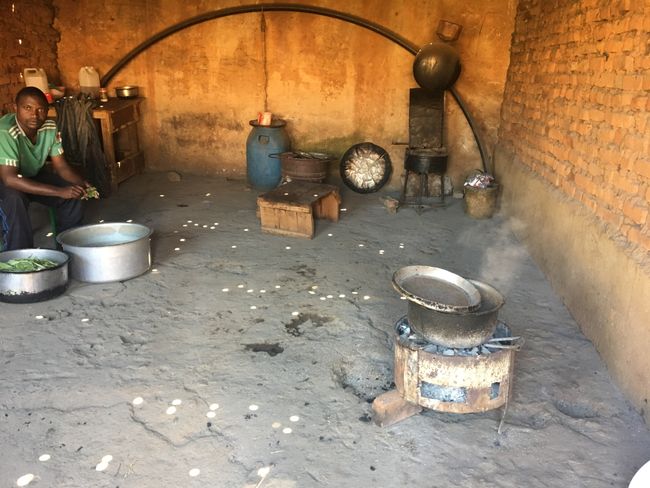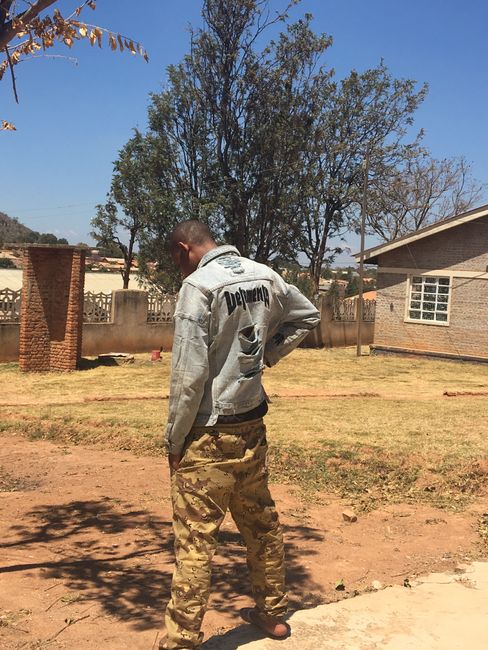Taking risks
Publicados: 14.09.2018
Assine o boletim informativo
'Taking risks means temporarily losing your solid ground. Not taking risks means losing yourself.'
I didn't spend today in the delivery room.
My destination today was 'Soberhouse'.
A kind of rehab clinic, at least that's how they advertise themselves.
Saskia and Mia spend their mornings here. They study psychology in Germany and have already told me a lot about it. I just wanted/ needed to see it with my own eyes and went there, curious but with a premonition.
It takes about 20 minutes by bus, followed by a walk. This house is definitely a bit remote.
A house, a stone wall, and a locked gate.
We knocked and were greeted kindly.
A circle of chairs was already set up inside the house. But first, we were hit by that smell.. (sweat, urine, dirt, stuffy air)
Currently, 14 men plus 1 'supervisor' live or rather dwell there.
14 men in rehab, sleeping in rooms with three or four people, only 1/4 have a bed, the rest only have a thin foam mattress. Next to it, a bag with personal belongings. That's it.
Almost all of them showed up for the morning 'therapy'. At least physically they were present. But it immediately became apparent that half of them seemed absent and fell asleep after a few minutes. Apparently, the men receive such strong sedatives that they are not even capable of participating in this conversation.
In Germany, we assume that a therapist works with them. Unfortunately, that is not the case in Tanzania. Mental illnesses are completely unknown here and psychologists? 'Every doctor is a psychologist for us, we don't need specialists.' The answer says it all.
Usually, a simple teacher gives a 2-hour lecture to the addicts here. Since Saskia and Mia took over this part, the teacher isn't even present. So we were alone with the addicts and were quite respectful. After all, we were locked in with them.
The first hour in the circle was mostly about religion. God plays a big role in everyday life and in all situations, and faith gives them strength.
However, it is presented in a way that the men should only focus on praying and then God will heal them. They can't do anything else.
We white women didn't share that opinion. He should help them, but he is not the only key to overcoming addiction. The second part, which we designed, focused on emotions. The question of the reason for the addiction, a goal after their stay here, and the plan that these people would first have to gain insight.
It was difficult, very difficult.
All the men were sent here by their families. Since there is no health insurance, the families pay for their stay, and that is a lot of money for Tanzanians (300,000 shillings per month, around 113 euros). That means all the men are at a different point in their addiction recovery. Whether it's been 1 day, 3 months, or 2 years here, the group therapy is the same. In our eyes, that already makes absolutely no sense. The drugs consumed are also mixed. And the duration of the withdrawal depends on the families' money, not the time needed for each individual. These are the basic problems.
We asked questions and wanted to have a conversation with them. But, like everywhere in Tanzania, they stuck to the key principles: not showing weakness, not revealing emotions, and not letting anyone know if you're not feeling well.
Phew, difficult to conduct psychotherapy like this.
The men sat dazed, unhappy, and unstable in front of us, and when asked a simple question about how they were feeling, they would answer, 'I feel good, happy, feel love and peace.'
You sit there, shaking your head, and want to shake them awake and explain to them that they can speak openly here.
But on the other hand, I understand them too..
I was never the type of person who liked to share in a circle of chairs.
Some things require one-on-one conversations. But then there is a lack of trust in the translator. Often we had the feeling that our statements were being twisted around in our mouths. If we didn't mention God in a sentence, he would definitely add it four more times.
So two hours of therapy pass quickly.. of course, without any success, but with the attempt to help the men.
In that moment, I truly felt great pity.
Of course, everyone is responsible for their own life and for the life they have led, which is why they are sitting there in the first place.
But I believe that every person deserves a second chance.
And you can feel that at least three of them really want to change and participate. But they can't help it that the concept itself is simply absolute nonsense. That their families can only pay for two months even though they need six, and that the 'teacher' prefers to laugh at the men rather than figuring out how to get them back on the right path.. that's not fair.
For the rest of the day, they are locked up in their house and sleep. Of course, this makes them miss their drugs even more.
We are starting a project with them: They have a large garden and also beets, but it hasn't been maintained so far. The goal is to give them a task with this, to give them a reason to get up in the morning and feel needed, we think it could help them.
We will start on Monday, and I am curious.
At the end, I asked one of them what he is most looking forward to after his 5 months here (he has already been here for 3 months as an alcoholic). His answer: Finally being able to drink my beer again.
Well, that leaves you speechless.
Today was a completely new experience for me, and I have to say that I feel much better at my hospital.
Even though I have currently lost hope of being able to change anything, at least I see the results of my work on site, accompanying births, immediately. When I hold a new life in my arms that has been able to enter the world safely and protected, I have at least done something good.
Saskia and Mia have a much longer way to go. I will continue to receive reports from them and remain curious.
It remains that a healthcare system must definitely be established here first, and as a second step, there must be better education in all areas. These are the main approaches for a change in the positive direction. And I hope that this will be achieved someday to help the people here in Tanzania, whether it's a pregnant woman, sick children, or addicts.
Assine o boletim informativo
Responder
